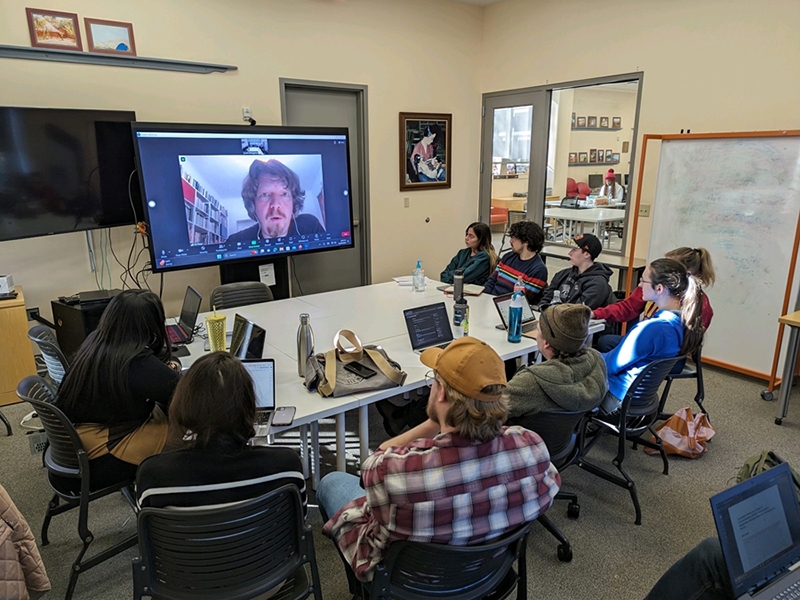
In November, Vít Šisler, a game designer from Prague, the capital city of the Czech Republic, joined the Intro to Digital Humanities course taught by Curtis Maughan, assistant teaching professor of world languages, literatures and cultures. Šisler is the co-founder of the world-renowned game studio Charles Games, from Charles University in Prague.
Šisler has been the lead designer for several serious games, such as Attentat 1942 and the forthcoming title, Playing Kafka. He was also a visiting Fulbright scholar at the Buffett Center for International and Comparative Studies at Northwestern University during his doctoral studies.
The class, which includes graduate and undergraduate students from diverse backgrounds, has been playing the serious game Svoboda 1945: Liberation, created by Šisler. Students have played the game to completion, and read some pieces written by Šisler about the challenges facing game designers who make serious games about traumatic historical events.
Svoboda 1945: Liberation tells the story of a small fictional town named Svoboda, where the player is faced with the task of investigating the chaotic aftermath of World War II and the collective memory of the citizens living in the town.
Intro to Digital Humanities students prepared questions for Šisler ahead of time, and Maughan moderated the Zoom Q & A. Students asked about the process of developing narratives for serious games, the target audience of historical games and the biggest challenges in developing a game on difficult but necessary topics. Maughan has written about both Attentat and Svoboda in his research on player agency and serious historical games.
This was the fourth time Šisler has joined Maughan's class to discuss his game, and both Šisler and Maughan hope to collaborate in the spring for an in-person event.
Maughan's spring course — Videogames and Human Agency — will explore the impact of player agency in serious historical games like Attentat and Svoboda, as well as other titles like Through the Darkest of Times. The course meets Tuesday and Thursday from 2-3:15 p.m. and is open to undergrads and grads, no prerequisites necessary: WLLC 398V - 002 / WLLC 575V - 002.
Svoboda 1945: Liberation is available for download on iOS and Android. Players can access the game on desktop and on mobile devices. For more information, visit svoboda1945.com.
Topics
Contacts
Cheyenne Roy, assistant director
World Languages and Digital Humanities Studio
479-575-4159,